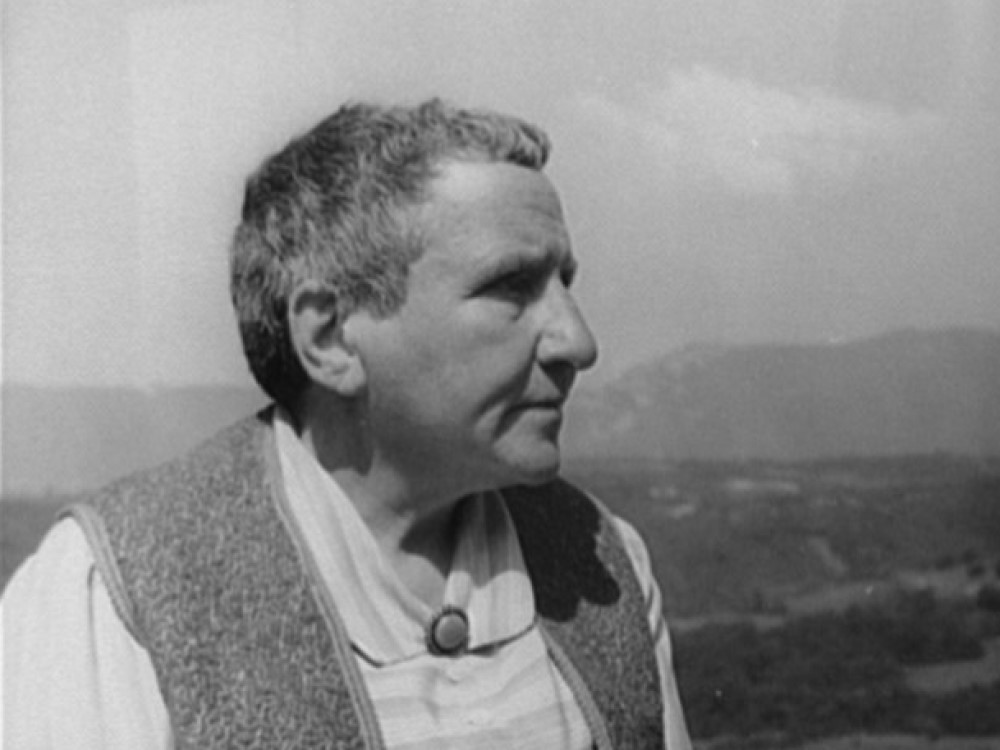
A legendary personality, Gertrude Stein is best known for changing the fate of Pablo Picasso and other great artists of the 20th century. Born in Pennsylvania, Stein moved to Paris in 1903 when she was 29 years-old. Along with her brother, Leo, Stein turned her Parisian residence into a meeting place, or salon, for writers and avant-garde artists. For over four decades, 27 Rue de Fleurus hosted some of the most well-known names of the art and literary worlds: Pablo Picasso, Henri Matisse, F. Scott Fitzgerald, James Joyce, and Ernest Hemingway, among many other luminaries. More than a hostess, however, Stein's literary and artistic judgments were revered, and her chance remarks could make or destroy reputations. Physically, she was an imposing figure, possessed of a remarkable self-confidence and a commanding manner. During her Paris years, Stein also experimented with language and writing, publishing a variety of avant-garde works in small magazines. True literary success came to Stein in 1932 when she published her book The Autobiography of Alice B. Toklas. It was her most conventional book and to her embarrassment – and delight – it became a bestseller.
Despite never finishing high school, in 1893 Stein enrolled at Harvard Annex, the Harvard’s women's college, which became Radcliffe College in 1894. Right away, Stein found Harvard's environment to be intellectually stimulating. She was active in drama and philosophy clubs, but her primary interest was the study of psychology under noted psychologist William James, who declared her his "brightest female student." With his encouragement, she published two research papers in the Harvard Psychological Review, before graduating magna cum laude with a Bachelor of Arts in Psychology from Radcliffe. Although Stein professed no interest in either the theory or practice of medicine, she enrolled at Johns Hopkins School of Medicine in 1897. In her fourth year, however, Stein failed an important course, lost interest, and left the school without graduating.
In addition to influencing writers and artists, Stein certainly influenced the universities she attended. To honor her legacy, in 1951, several years after her death, she received the first Woman of the Year Award from Harvard's Hasty Pudding Club, which is the oldest collegiate social club in the country. Meanwhile, members of the Johns Hopkins community established the Gertrude Stein Society. The student-led organization for lesbian, gay, bisexual, transgender, queer, and allied members of the Johns Hopkins medical and healthcare institutions, seeks to maintain her legacy of active LGBTQ+ presence and involvement in the affairs of the Johns Hopkins community today.
